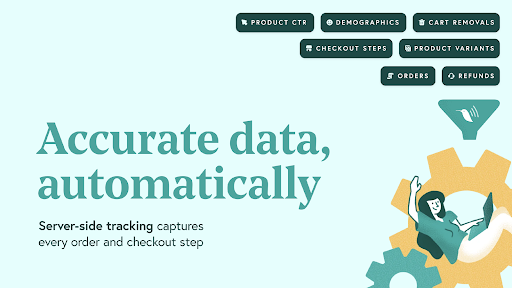Revenue-based loans for startups, emerging brands, and freshly launched projects have become tremendously popular this year. Subscription-based companies and SaaS businesses alike are actively leveraging the opportunities this loan model has to offer and are blooming as a result.

RBL is a business loan secured against a company’s future recurring revenue stream. Relative to current assets, basing a loan on future income is a significantly better option for companies that are still growing. The situation with invoice factoring is slightly different. Factoring companies that take over the billing relationship with customers to repay existing debts, which doesn’t work for companies like Littledata where most of the revenue is from Stripe cards or payouts from an app store.
In comparison to VC funding, RBLs are significantly less dilutive. This can sometimes mean that the current shareholders keep their same share of the business. Some lenders may require warrants to share in the upside if the client company’s growth takes off, but these are still not as dilutive relative to VC funds. Littledata’s spokesperson imparted that there is a negative to this approach:
“On the flip side, debt providers won’t be able to advise you. They are very transactional. VC investors exaggerate the benefit of their advice, which can be just as distracting as helpful,” said Edward Upton, Founder, and CEO of Littledata.
RBLs may be similar to venture debts in certain aspects, but they are also very different in others. The terms are often used interchangeably, but traditionally, venture debt was taken on alongside a big injection of cash in equity. This boosts the size of an already large funding round but doesn’t help companies trying to grow aggressively. RBLs can be used independently of any equity funding.
Businesses that have not yet generated $100,000 annual recurring revenue, as well as firms investing in markets floating in uncharted waters may find equity funding as a better option. To confidently invest in the stability of future revenue streams in potential clients, RBL debt providers look into the specifics of majority recurring revenue, high net year-on-year revenue growth, low customer value churn, and low customer concentration.

Edward Upton of Littledata imparted that his company specializes in helping growing businesses cover these elements and offers a host of benefits to each client, stating the following:
“Littledata qualifies on all fronts with 100% recurring revenue, 100% year-over-year growth, less than 40% gross value churn, and our largest customer is less than 2% of our revenue,” said Upton.
Littledata delved into revenue-based loans in 2020, during which time it took its first 3-month loan from Forward Advances. Since satisfactory ROI was unachievable with a free trial and the particular marketing strategy Littledata deployed during that time, it shifted to a 12-month loan with ClearCo in 2021, and later another 12-month loan from Capchase.
The company’s spokesperson said that the experience, forward-thinking strategies, and actionable solutions offered by Littledata can be an invaluable help to businesses seeking working capital, stating:
“If you’re a growing subscription business, check out the possibilities for RBL financing. Even if you don’t need the money now, it can be a useful option for bridging the next equity round, or allowing you to say “no” to egregious term sheets.”

More information about Littledata is available on the company’s official website.
Media Contact
Company Name: Littledata
Contact Person: Blake Wisz
Email: Send Email
Country: United States
Website: https://www.littledata.io/